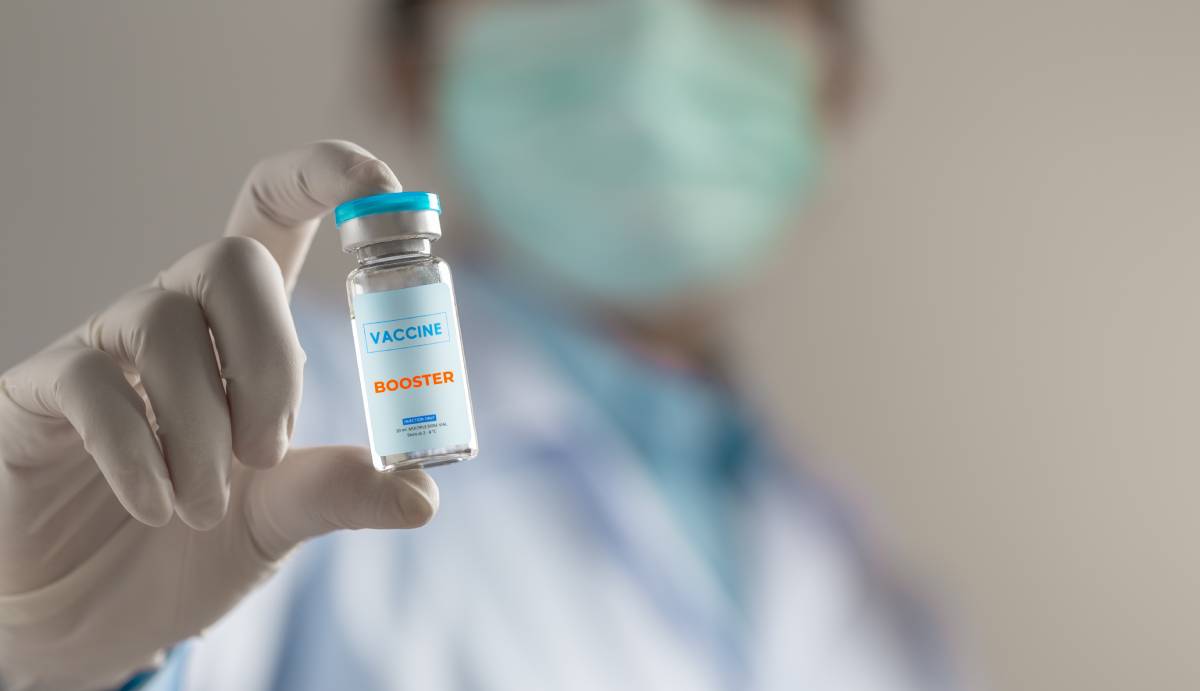Long Covid, also known as post-Covid condition, long-haul Covid, or post-acute Covid-19, is the continuation or development of new symptoms 3 months or more after the initial SARS-CoV-2 infection (the virus that causes Covid-19), with these symptoms lasting for at least 2 months, according to the World Health Organization.1 Common symptoms include fatigue, shortness of breath, and a state of cognitive confusion and lack of concentration known as “brain fog.” 18 million Americans have said they had long Covid at some point, while 8.8 million said they had the condition in 2022.2 The exact etiology of long Covid is still unclear, though an autoimmune response, lingering SARS-CoV-2, and organ damage have all been implicated. The lasting effects seen in long Covid raise questions about patients’ immune state and interactions with continued vaccination or booster shots.
Thanks to a recent study from scientists at the Montreal Clinical Research Institute, is that long Covid patients who received Covid-19 vaccination, or booster shots, had reduced symptoms and improved overall well-being.3 In this study, 83 participants previously infected with SARS-CoV-2 and diagnosed with long Covid were given two doses of the Covid-19 vaccine approximately three weeks apart (the Pfizer, Moderna, and AstraZeneca vaccines were all used). About half of the participants had been vaccinated against Covid-19 prior to the study.
To assess the effects of booster shots on long Covid, the researchers measured the participants’ saliva SARS-CoV-2 concentration and blood plasma levels of cytokines (proteins involved in the immune response), SARS-CoV-2 proteins, and antigens to the viral proteins. Participants also completed the World Health Organization-5 Well-Being Index, an assessment tool that measures mental health, and reported on their symptoms (including fatigue, trouble with concentration, and trouble with memory) throughout the study. Compared to clinical data from unvaccinated participants, the vaccinated group showed a significant reduction in long Covid symptoms, as well as lower plasma concentrations of SARS-CoV-2 proteins and antigens and inflammatory cytokines. Additionally, 77.8% of participants reported improved mental wellbeing scores.
In addition to reducing the symptoms of long Covid in patients with the condition, vaccination before a diagnosis of long Covid can mean fewer symptoms once a patient develops the condition. A July 2023 study published in the Journal of Investigative Medicine 4 involved 477 participants with long Covid, about half of whom had received at least one dose of the Covid-19 vaccine prior to becoming infected. People in the vaccinated group were half as likely to experience abdominal pain as those in the unvaccinated group and less likely to report other symptoms, such as dizziness, chest pain, loss of smell, and weakness.
Based on the findings mentioned above, it’s not surprising that the best defense against long Covid of any severity is preemptive vaccination. A National Institutes of Health study of more than 47000 individuals found that vaccination led to lower rates of long Covid, even after accounting for the fact that vaccination helps prevent SARS-CoV-2 infection in the first place.5 As the SARS-CoV-2 virus continues to evolve, and our understanding of long Covid continues to improve, the role of vaccination and booster shots in mitigating and preventing the harmful effects of this often-debilitating condition will hopefully become clearer.
References
1. Post COVID-19 condition (Long COVID). World Health Organization. https://www.who.int/europe/news-room/fact-sheets/item/post-covid-19-condition
2. Adjaye-Gbewonyo, D., Vahratian, A., Cria G., P. & Bertolli, J. Long COVID in Adults: United States, 2022. https://stacks.cdc.gov/view/cdc/132417 (2023), DOI:10.15620/cdc:132417.
3. Nayyerabadi, M. et al. Vaccination after developing long COVID: Impact on clinical presentation, viral persistence, and immune responses. Int. J. Infect. Dis. 136, 136–145 (2023), DOI: 10.1016/j.ijid.2023.09.006
4. Vanichkachorn, G. et al. Potential reduction of post-acute sequelae of SARS-CoV-2 symptoms via vaccination. J. Investig. Med. 71, 889–895 (2023), DOI: 10.1177/10815589231191812
5. Brannock, M. D. et al. Long COVID risk and pre-COVID vaccination in an EHR-based cohort study from the RECOVER program. Nat. Commun. 14, 2914 (2023), DOI: 10.1101/2022.10.06.22280795
